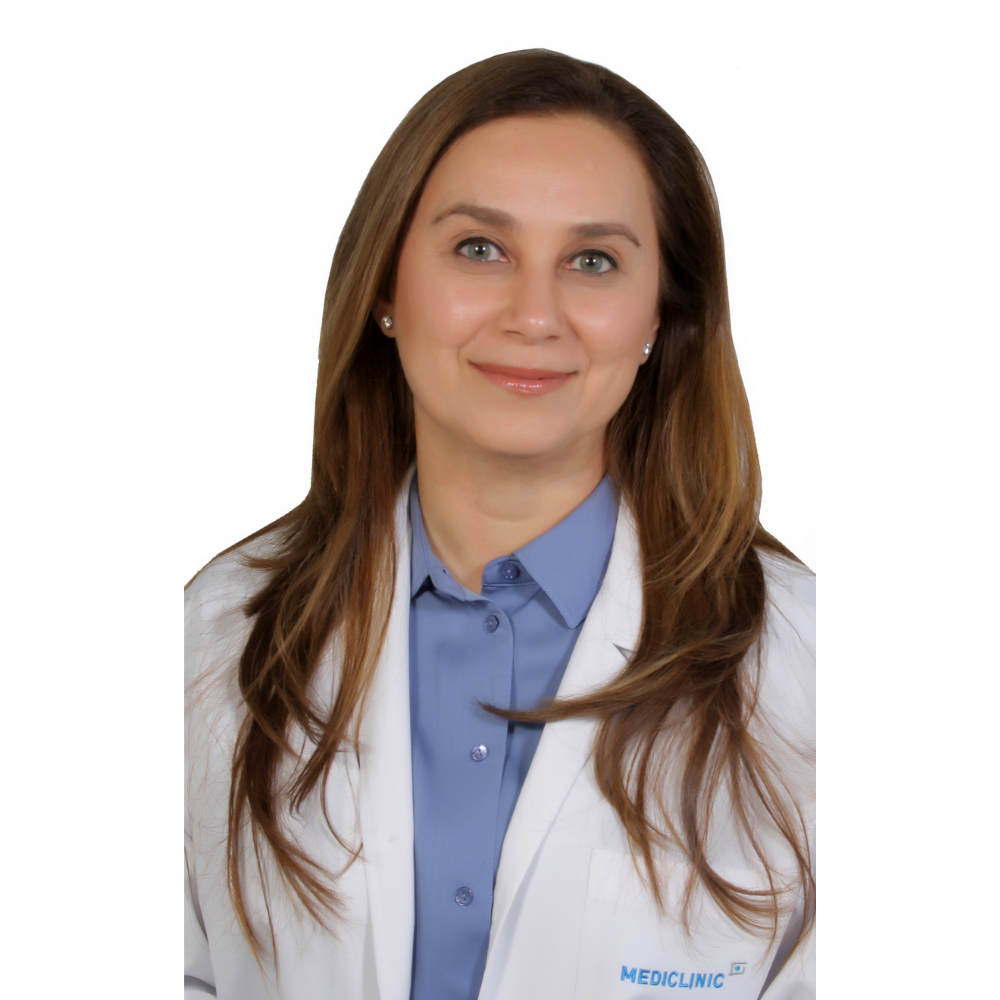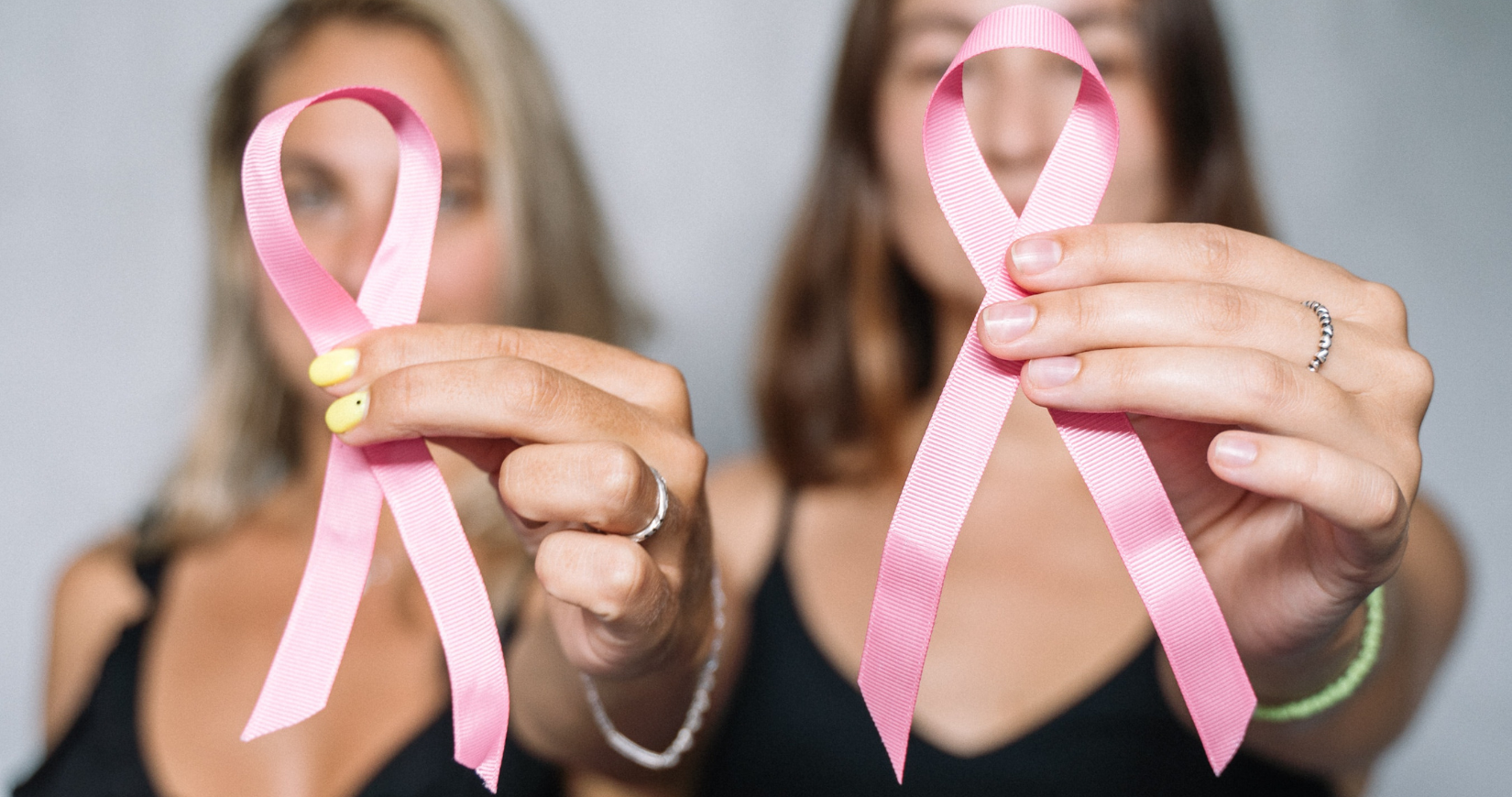IN PARTNERSHIP: Every year October marks Breast Cancer Awareness Month, encouraging women to check their breasts regularly because being able to detect cancer signs in its earliest stages means it is easier to treat.
Self-examination is key for this, and then if something abnormal is discovered it is always best to get it checked out by a medical professional.
In order to encourage women getting checked as early as possible, Mediclinic Dubai Mall is offering a free initial consultation with a family medicine doctor or another specialist for women age 40 and above – the age range where women are most affected by breast cancer – for those who have not a mammogram in the last 12 months.
To give you the best advice possible, Emirates Woman spoke with Dr. Anjum Ishaque, who is based in Mediclinic Dubai Mall, about some of the key questions surrounding breast cancer.
With more than 15 years experience in family medicine and having worked in both Dubai and London, Dr. Ishaque shares her expertise including when exactly is the time to get checked for breast cancer; debunking myths about breast cancer; the most common breast cancer questions patients ask; and more.

The main steps you should check for breast cancer yourself
Examining your breast regularly increases detection of cancer at an early stage. This can be done in a few simple steps either by standing in front of a mirror or in the shower. The first three steps involve looking at your breasts and noting changes while in the last three steps you are feeling for changes.
- First look at the breasts with your arms at the side.
- Next put your hands on the hips and lean forward and tighten the chest muscles.
- Next raise your arms and put them behind your head and look at your breasts again.
- Place your Left hand on your waist and roll your shoulder forward on the same side. With the Right hand feel for any swellings in the armpit. Repeat this on the other side.
- Next raise Left arm and feel the breast with the Right hand. Using the pads of three or four fingers go in a circular motion or up and down. Try to be systematic so that the whole breast is covered and you do not miss any area.
- Lastly, lie down and feel your breasts and armpits again as described in the previous step.
What is the sign you should look for to get checked out by a doctor?
On examination, you should note changes in the skin of the breast like redness, dimpling or puckering or any visible swellings. Next look at the nipples and note the shape to see that one is not pulling in and there is no discharge. Then feel for any lumps or swellings in the armpits and breast tissue. All of the above can be signs of breast cancer and should prompt a visit to the doctor for further review. An early visit to the doctor may help allay fears if no cause for concern is found and improve your chances of survival if breast cancer is detected.
What age should you start going for regular breast check-ups?
Regular breast examinations by a doctor and mammograms are advised from the age of 40. If there is a strong family history of breast cancer from the maternal side, then regular visits to the doctor should start at an earlier age. A breast ultrasound is more accurate in this age group and will be advised if required.
Are there any myths about breast cancer people believe that you can debunk?
Patients are deterred from attending for mammograms as they worry that the radiation dose during the test will increase their risk of breast cancer. This is completely incorrect as most modern mammograms give an extremely small radiation dose and have not been associated with an increased risk of breast cancer. Missing early breast cancer by not having regular screening is likely to cause more harm as it would need more extensive treatment including radiotherapy as well as lead to more deaths.
What is the main aim of Breast Cancer Awareness Month?
The main aim is to increase awareness of the signs of symptoms of breast cancer so that patients seek help early and have better outcomes after treatment. Cure rates from stage I and II breast cancer are over 90 per cent. These rates tend to fall for more advanced disease. By encouraging the patient to self-examine, recognise symptoms of breast cancer and to have regular screening we hope to pick up Breast cancer at an early stage resulting in less aggressive treatment as well as improved survival rates.
What are the treatments Mediclinic offers?
Mediclinic offers a comprehensive service from diagnosis to treatment. All modalities of screening including ultrasound, mammograms and biopsies are available for detection of breast cancer. Surgery for removal of the tumour, radiotherapy, chemotherapy and reconstructive breast surgery are then offered as needed. A multidisciplinary team of specialists are involved in the management of each case to offer therapy tailored to the individual.
What causes breast cancer?
The causes of breast cancer are multifactorial. A strong family history (with specific gene mutations especially the BRCA1 Gene) is the biggest risk factor. In addition smoking, unhealthy eating habits, lack of exercise and being overweight have all been cited as factors. Having your first child late in life, not breastfeeding or taking Hormone replacement therapy for more than five years are all thought to be contributory factors as well.
What type of doctor should I see if I think I have breast cancer?
Family Medicine Doctors, General Practitioners, Breast and General Surgeons and Gynecologists are all able to examine patients and refer for mammograms and breast ultrasound if required. If breast cancer is diagnosed then patients will be referred to specialists for further evaluation and treatment.
The most common questions you get from patients after a breast cancer diagnosis
Patient’s first questions are usually about survival rates as well as the side effects of surgery, chemotherapy and radiotherapy. Survival rates are very good even with more advanced disease and are constantly improving. Nausea and hair loss associated with chemotherapy though distressing is usually temporary. Reconstructive breast surgery after mastectomy can also lessen the psychological impact of treatment.
A lot of people are currently afraid to enter hospitals due to COVID-19. Why is it still so important to ensure you get checked?
It is extremely important to Detect Breast Cancer at an early stage as this leads to better survival rates and may result in needing less aggressive treatment.
The stringent screening and hygiene measures practised in all Mediclinic hospitals and clinics ensure safety for our patients and staff. These safety measures are in place during all stages of the patient journey and it would be a real pity to miss an early diagnosis of breast cancer due to perception of infection risk by patients.
Other essential information…
Breast cancer is a common cancer in women but the chances of survival are excellent and constantly improving due to early detection and advances in treatment. This should encourage women to come in for regular screenings as well as an examination if they are worried about any breast issues. A timely check-up will rule out cancer and allay anxiety if the symptoms are due to a benign cause. If Cancer is found then again you will get the treatment and support that is required to overcome this disease and for the best chance of cure. This month is a reminder to make your health a priority and don’t let fear stop you from getting screened for breast cancer.
There’s currently a 50 per cent discount on screening mammograms if advised by a Mediclinic doctor. Complimentary breast reconstruction consultations are also on offer. There are limited bookings for the month of October. Mediclinic Dubai Mall from Sunday to Wednesdays, 8am to 5pm. Appointments only.
For more information visit the Mediclinic website.
– For more on luxury lifestyle, news, fashion and beauty follow Emirates Woman on Facebook and Instagram
Images: Supplied, Feature Image: Pexels











